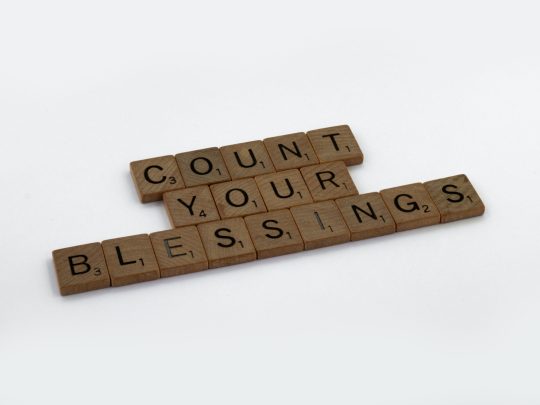Text
Managing Relationship Stress During The Holidays

Managing Relationship Stress During The Holidays
Neighborhoods are beginning to twinkle with holiday lights for Christmas. Christmas trees appear everywhere you look. Peace, love, and joy fill the atmosphere with one exception – your home. Unfortunately, stress is beginning to build, and with that comes the inevitable conflict. Relationships suffer, and loving feelings are scarce. Disputes over where to spend the holidays, which traditions to uphold, how much to spend on gifts, and the stress of shopping, even online, take the "ho-ho-ho" out of the season. So how can you be proactive and minimize the stress and damage the holidays bring?
Plan and establish traditions.
Traditions create connection, security, and intimacy in who you are as a couple and as a family. These are important for establishing your

identity as a separate family unit.
Each person brings their own family culture and traditions to the relationship. That is likely to include traditions centered around the holidays. However, expecting to bring those traditions into the marriage can create conflict when those traditions and rituals clash.
Have a conversation about which traditions from your family of origin are most meaningful to you. If you each could choose one tradition, which would it be? Include your best and worst holiday experiences and how to avoid repeating them in the discussion. What holiday experience have you both enjoyed together, and is it feasible to repeat it each year?
Manage the triggers of you and your spouse.
For various reasons, the holidays can be difficult for many people. If a loved one who played a significant role in your life has recently passed, the holidays can magnify the loss. If this is the case, change your holiday routines and perhaps establish some new traditions that don’t spotlight the absence of your deceased loved one. For example, instead of Christmas dinner at the dining table where the loved one occupied a particular chair, have a Christmas brunch buffet and sit anywhere you want in the family room. You can also talk with your spouse and children about ways to remember and honor the person who has passed away.
Music, lights, events, people, sounds, smells, food, alcohol, etc., can all trigger painful memories. Do your best to understand these triggers in you and your spouse and avoid them when possible. If avoiding them is impossible, plan how to help each other when either of you is triggered.
Sometimes even just lowering your expectations for the holidays can help. It's often the moments when you're most trying to make the holiday perfect for someone else that you end up steamrolling over your spouse's emotions.
Practice damage control
If you and your spouse have the same argument or a negative pattern of relating to one another every holiday season, take some time to plan to minimize the effects. Plan how you will approach the argument or sensitive areas. Identify what triggers are involved for either or both of you. Talk about how you each feel about each area and make suggestions on how you would prefer to handle it. Seek to understand your spouse's perspective and feelings first. Practice empathy. Compromise. Negotiate. Go for the win-win solution. Nobody wins if somebody loses. If one of you loses, you both lose! It's practicing conflict resolution ahead of time so that your holiday spirit doesn't dampen or dissolve entirely.
Have fun together, apart from others.
Sure, the holidays are about family, travel to be with family, office parties, children's activities and programs, travel, etc., but don't neglect each other. In particular, carve out the time to grant yourselves a reprieve from the frenzy and focus on each other. Spend a day in bed or on the couch watching Christmas movies and drinking hot chocolate or wine. See Christmas lights. Rate each house and choose your mutual favorite. The internet is full of ideas if you need help. Many of them are inexpensive or low-cost.
Make a mutually agreed upon budget.
It is so easy to overspend in the season of giving. But so many fights and misunderstandings can be avoided if you will take the time to make a budget for the holidays. Be sure to include not only gifts but an increase in food costs and decorations.
Regarding gifts, talk about how much you would like to spend for your children, family members, teachers, friends, etc. Be sure to include some for unforeseen gifts, just in case.
Give of yourselves- together.
Volunteer for a worthy cause with your spouse. Help to provide blankets, gloves, and coats for the homeless. Help to host a Christmas party for children in an impoverished area. Don’t pass by a Salvation Army bell ringer without donating in their bucket. Find out the opportunities in your area and involve the kids if appropriate. Many churches have options for serving those in need. A more profound sense of gratitude and appreciation for your blessings will grow from your participation. Giving of time, self, and material resources celebrates "the reason for the season" in the best way.
There's no way to avoid the stress of the holidays altogether; however, the season can be enjoyed and celebrated with proactive conversations and planning.
If you would like to discuss how we can help you and your relationship, don't hesitate to contact me at [email protected] or call 866-218-1716. You may also visit our website, www.LoveRecon.org, for testimonials and information.
Read the full article
0 notes
Text
Signs Of Toxic Communication

SIGNS OF TOXIC COMMUNICATION
With healthy and productive communication, you and your partner can build a solid relationship that can withstand practically anything and bring you joy and fulfillment. Without healthy communication, you and your partner will be both unfulfilled and miserable. Following are communication patterns that are harming your relationship. You or your partner or both of you could be using these. Awareness is the first step, so as you read over these, note which ones either of you uses in your relationship.

- Criticism and Contempt. Typical statements are: “You never listen.” “You just don’t get it.” There is name-calling, eye-rolling, and disrespect for the other person. Disgust is the primary emotion expressed. A relationship that has deteriorated to this point is seriously close to the end if things don’t change.
- Changing the Subject. "Well, I remember the time that you…." This is an attempt to change the conversation for personal benefit or to gain an advantage.
- Being Sarcastic or Jabbing. Sarcasm can be condescending. “Wow, you’re a real genius!” “Life is good… you should get one.” “Cancel my subscription because I don’t need your issues.” “What’s wrong? Can’t you take a joke?” A little sarcasm or jabbing with jokes goes a long way. The truth of how one feels or what one thinks is thinly masked by the so-called “humor.”
- Labels are for bottles, not people! It is hurtful and non-productive to make statements about your partner, such as, "You’re selfish, forgetful, emotional, controlling, etc.”
- Threats. Threats can be spoken or implied. They can be used to make unreasonable demands and are a way to neutralize the other’s opinions or feelings. A threat is a manipulation based on the other person's fear. Ultimatums are usually given as well.
- Nitpicking/Changing Expectations. "You missed a spot." "Who cares anyway?” “You shouldn’t have spent so much time on that.”
- This is an attempt to make you feel bad about yourself.
- "You should be ashamed of yourself!" This can be an attempt to use your past wounds or trauma against you. It can be bragging about one’s self, especially in the areas of the other person's brokenness. “Well, at least one of us had a normal childhood.”
- Superlatives and Blanket Statements. “I’ll never forgive you.” “You always…” “You never…” The other person's feelings and perspectives are not given consideration.
- Making Assumptions. This is assuming that the other person should know things or should be able to figure it out on their own. While this may be true some of the time, usually, it only serves to increase misunderstanding and disconnection. They can't read your mind, so they can't meet your needs. And if they can't meet your needs, you begin to feel resentment. The resentment builds, and you become unwilling to meet their needs. Don't assume!
- Not Being Vulnerable. Not keeping your guard up opens the door to the emotional intimacy you can build with your spouse instead of keeping things at a surface level. Opening yourself up can seem scary and uncomfortable, but the reward is trust and a level of closeness essential for a robust and healthy connection.
- Making Judgments. “You’re wrong!” “That would never work.” Shooting down your partner's point is judgmental and counter-productive. Even if you disagree with or don't understand, withhold judgment, especially until you have validated (valued) them and considered their idea. Then you can respectfully disagree – unless, of course, you have realized that their idea was a great one!
- This is when one partner projects their behavior onto the other. "You're too needy" when they are the one being clingy. "You're a liar" when they are the one who is lying. Blame shifting occurs when they have difficulty taking responsibility for their problems or relationship problems and blame the other person.
- Lack of Validation. Validation is not agreement. Validation means, "I value you – your thoughts, feelings, your perspective." To validate someone, in part, means, "I hear you. I see you. You are important to me." Each partner may communicate validation in phrases like: "I understand why you feel that way." "You make a valid point." “ Thank you for sharing that with me. It helps me gain perspective.”
- Using the Silent Treatment. This is sometimes called “stonewalling." One person shuts down and refuses to talk to the other. This is not using the "time out" relationship tool. It is an attempt to punish the other person or make a point through silence. All communication stops or is only one-sided. Nothing is ever solved or resolved through stonewalling.
- When one of you talks to someone other than your spouse about your problems with your spouse, you create an unhealthy relationship "triangle." This is especially true if you speak to someone else before you talk with your spouse. This breaches confidence and erodes your spouse’s trust in you.
A healthy triangulation would be to talk with a marriage therapist or relationship coach about what you and your spouse can do to develop healthy communication and interaction in your relationship. Love Recon seminars and Recon Coaching can help. It’s what we do!
Read the full article
0 notes
Text
7 HOLIDAY QUESTIONS FOR YOU AND YOUR PARTNER

7 HOLIDAY QUESTIONS FOR YOU AND YOUR PARTNER
Any problem, big or small, within a family always seems to start with bad communication. Someone isn't listening. - Emma Thompson, Actress
Do you find yourself stressed about the holidays, fighting before family events, dreading being around certain family members, feeling anxious about extra spending, or gaining extra pounds? If there is anything that will help you survive and even enjoy the holiday season with your partner, it is communication. So why not ask each other some of the following questions…
- What are your expectations and hopes for this holiday season? Are they realistic, or are you setting them too high? What are

reasonable and positive expectations and hopes? Family members most likely haven’t changed since last year, so what boundaries do you need to set to protect yourself and your relationship?
- What is the one thing that you would most like to do this season? Why?
Is it attending a concert or event? Is it making sure that we plan an overnight trip? Is it decorating the outside of the house, etc.?
- What do you fear the most about the season? Dealing with a difficult family situation? Not being able to fulfill everyone else's expectations and hurting feelings? Being ill and not able to enjoy the festivities? Be honest and vulnerable. Getting it out will "shrink" it, and you will have your partner's understanding and support, even if they can't "fix it."
- What can we do if situations become tense or worse? Have a plan. For instance, you can have a pre-agreed-upon signal to use. Either of you can give the signal, and then you will take a walk together. You can check in with each other and get fresh air and a little exercise simultaneously!
- How can we stay connected emotionally during the holidays? You don’t have to have a long list, just one or two ways to maintain your closeness as a couple. For example, you could work out together, have morning coffee together before starting the day, plan for and prioritize your physical intimacy, etc.
- Would you like to exchange gifts with each other this year? Be clear on how much you will spend if the answer is yes.
- What do you think our holiday budget should be? A holiday budget, including gift-giving, events, activities, and extra food expenses, is always a good idea! In addition, you will decrease your stress and your credit card bills that will show up in February.
If you would like to talk with someone about how you and your partner can better communicate through the holidays … and anytime …don't hesitate to contact me at [email protected] or call 866-218-1716. You may also visit our website, www.LoveRecon.org, for testimonials and information.
Read the full article
0 notes
Text
Is Clutter Ruining Your Relationship?

Is Clutter Ruining Your Relationship? Find Out NOW!
It is undeniable that you are affected by the habits of your partner. You are committed to one another, and you share space. In that space are all sorts of belongings, from furniture to clothes, books, kitchen items, hobby supplies, sports and fitness equipment, audio-visual equipment, etc. Growing up, one of you may have been told, "Cleanliness is next to godliness," or "Everything has a place and everything in its place." One of you may have grown up in a cluttered yet comfortable household and are at peace amongst the household items that never seem to make it to the drawer, closet, garage, etc. There are many reasons that you and your partner may struggle with clutter. It could be rebellious or passive-aggressive acting out. The busyness of life doesn't allow time for organizing. Maybe you were never taught how to organize your stuff. Mental health issues can also be a factor, leading to hoarding. This blog can't fully address all of the reasons for clutter, but I will address the effects of clutter and some practical ways to deal with it if it is an issue in your relationship.
Negative Effects of Clutter
-
“Low Grade” Stress
This generalized stress is an undercurrent in the life of a person who cannot feel relaxed in their environment. This kind of stress bleeds into

every part of their relationship. Arguments about nothing can be a sign of this. If your spouse is feeling stressed, chances are you are also feeling stressed. Clutter, therefore, not only affects your spouse but also creates a stressful atmosphere for you.
-
A Sense of Weariness
Clutter is emotionally heavy. Walking into a cluttered room or garage can be overwhelming for some people. You may not realize it, but your cluttering could be causing your partner to feel frustrated, exhausted, and maybe angry about the mess and the tension between you.
-
Judging and Arguing
Clutter becomes a frequent topic of conversation. Unfortunately, nothing changes, so the non-clutterer may become frustrated and judge or verbally put down their spouse. As a result, their spouse may become defensive or combative, and no understanding or resolution is found.
-
Feeling Devalued
If your spouse lets you know specific clutter that bothers them, and you continue to clutter, they feel devalued and not considered worthy of the effort. It could be as simple as leaving your shoes in the den and not putting them in the closet. Each time they see your shoes in the middle of the floor, they will feel disrespected by you.
-
Inability to Enjoy Life and People’’
You would love to invite friends to your home for dinner, but that would require hours of decluttering and organizing. You can't seem to get motivated and may be feeling stifled. All your relationships suffer because you are not participating in activities. Your partner may begin to feel disconnected from you and resentful because you are also stifling them.
-
Financial Difficulties
You can't find the shoes you want to wear to an event, so you buy another pair. Things are lost or buried in your piles of stuff, so you repurchase what you already own because it's easier than organizing. Shopping could even be "retail therapy" because it makes you feel better, but you are gathering more stuff to add to the pile. You make unplanned purchases for unnecessary items and therefore accumulate more clutter. And, of course, financial difficulties will put extra strain on your relationship and, in some cases, even end the relationship.
Steps to Deal with Clutter
If the signs and symptoms of clutter above are evident in your relationship, then cluttering is an issue. Here are some simple steps to resolve the problem.
- Listen to what your partner says and how they feel about the clutter. Be willing to hear what they say, and don't get defensive. Recognize that the clutter (maybe mostly done by you) is a real problem. Don't deny or dismiss it.
- Get Organized. Take a weekend and get organized. Donate items that you haven't used for months … or years! Put your stuff in some semblance of order. Recycle the recyclables and throw things away. You will feel better, maybe if only because your spouse is happier.
- Make Room. Clear out space in your closet(s), bedroom(s), study, garage, etc., so you will have room to keep what you want.
- Get Help. If you don't have the time to get organized, or if it's not in your skill set, hire someone to help you. The cost of a professional organizer will be worth it if it creates a more peaceful, enjoyable, and stress-free environment in your home.
- Designate Clutter-Free Spaces. This could be your bedroom, bathroom, workspace, or wherever you like to relax and recharge.
- Establish Clear Up Clutter Routines. When my wife and I raised a family, our "clear up the clutter days" were Mondays and Thursdays. However, any day of the week that you saw something out of place, you were to pick it up and put it on the bed of the person to whom it belonged. Our motto was, "Don't pass it up. Pick it up." Then the person who owned the item would need to "put it up" so they could go to bed or leave it in a pile on the floor until Monday or Thursday. It was their choice. We still have the routines, even though it’s just the two of us in the house.
- Learn the Value of Things. I'm not talking about monetary value here, but the place things occupy in your life. Do you own them, or do they own you? Would keeping and maintaining so much stuff give you a sense of peace, make your relationship happier, or bring you more joy?
You don't have to become a strict minimalist and get rid of all your things. With communication, patience, and love, you can find a way to make both of you comfortable. Begin by understanding that your other half might be oblivious to the clutter and the effect that it is having on you. If you, however, are the messy one, be understanding and realize that your clutter could overwhelm your spouse. Whichever one you are, be willing to compromise and meet in the middle.
If you want to discuss how we can help you and your relationship, please get in touch with me at [email protected] or call 866-218-1716. You may also visit our website, www.LoveRecon.org, for testimonials and information.
Read the full article
0 notes
Text
Is Clutter Ruining Your Relationship?

Is Clutter Ruining Your Relationship? Find Out NOW!
It is undeniable that you are affected by the habits of your partner. You are committed to one another, and you share space. In that space are all sorts of belongings, from furniture to clothes, books, kitchen items, hobby supplies, sports and fitness equipment, audio-visual equipment, etc. Growing up, one of you may have been told, "Cleanliness is next to godliness," or "Everything has a place and everything in its place." One of you may have grown up in a cluttered yet comfortable household and are at peace amongst the household items that never seem to make it to the drawer, closet, garage, etc. There are many reasons that you and your partner may struggle with clutter. It could be rebellious or passive-aggressive acting out. The busyness of life doesn't allow time for organizing. Maybe you were never taught how to organize your stuff. Mental health issues can also be a factor, leading to hoarding. This blog can't fully address all of the reasons for clutter, but I will address the effects of clutter and some practical ways to deal with it if it is an issue in your relationship.
Negative Effects of Clutter
-
“Low Grade” Stress
This generalized stress is an undercurrent in the life of a person who cannot feel relaxed in their environment. This kind of stress bleeds into

every part of their relationship. Arguments about nothing can be a sign of this. If your spouse is feeling stressed, chances are you are also feeling stressed. Clutter, therefore, not only affects your spouse but also creates a stressful atmosphere for you.
-
A Sense of Weariness
Clutter is emotionally heavy. Walking into a cluttered room or garage can be overwhelming for some people. You may not realize it, but your cluttering could be causing your partner to feel frustrated, exhausted, and maybe angry about the mess and the tension between you.
-
Judging and Arguing
Clutter becomes a frequent topic of conversation. Unfortunately, nothing changes, so the non-clutterer may become frustrated and judge or verbally put down their spouse. As a result, their spouse may become defensive or combative, and no understanding or resolution is found.
-
Feeling Devalued
If your spouse lets you know specific clutter that bothers them, and you continue to clutter, they feel devalued and not considered worthy of the effort. It could be as simple as leaving your shoes in the den and not putting them in the closet. Each time they see your shoes in the middle of the floor, they will feel disrespected by you.
-
Inability to Enjoy Life and People’’
You would love to invite friends to your home for dinner, but that would require hours of decluttering and organizing. You can't seem to get motivated and may be feeling stifled. All your relationships suffer because you are not participating in activities. Your partner may begin to feel disconnected from you and resentful because you are also stifling them.
-
Financial Difficulties
You can't find the shoes you want to wear to an event, so you buy another pair. Things are lost or buried in your piles of stuff, so you repurchase what you already own because it's easier than organizing. Shopping could even be "retail therapy" because it makes you feel better, but you are gathering more stuff to add to the pile. You make unplanned purchases for unnecessary items and therefore accumulate more clutter. And, of course, financial difficulties will put extra strain on your relationship and, in some cases, even end the relationship.
Steps to Deal with Clutter
If the signs and symptoms of clutter above are evident in your relationship, then cluttering is an issue. Here are some simple steps to resolve the problem.
- Listen to what your partner says and how they feel about the clutter. Be willing to hear what they say, and don't get defensive. Recognize that the clutter (maybe mostly done by you) is a real problem. Don't deny or dismiss it.
- Get Organized. Take a weekend and get organized. Donate items that you haven't used for months … or years! Put your stuff in some semblance of order. Recycle the recyclables and throw things away. You will feel better, maybe if only because your spouse is happier.
- Make Room. Clear out space in your closet(s), bedroom(s), study, garage, etc., so you will have room to keep what you want.
- Get Help. If you don't have the time to get organized, or if it's not in your skill set, hire someone to help you. The cost of a professional organizer will be worth it if it creates a more peaceful, enjoyable, and stress-free environment in your home.
- Designate Clutter-Free Spaces. This could be your bedroom, bathroom, workspace, or wherever you like to relax and recharge.
- Establish Clear Up Clutter Routines. When my wife and I raised a family, our "clear up the clutter days" were Mondays and Thursdays. However, any day of the week that you saw something out of place, you were to pick it up and put it on the bed of the person to whom it belonged. Our motto was, "Don't pass it up. Pick it up." Then the person who owned the item would need to "put it up" so they could go to bed or leave it in a pile on the floor until Monday or Thursday. It was their choice. We still have the routines, even though it’s just the two of us in the house.
- Learn the Value of Things. I'm not talking about monetary value here, but the place things occupy in your life. Do you own them, or do they own you? Would keeping and maintaining so much stuff give you a sense of peace, make your relationship happier, or bring you more joy?
You don't have to become a strict minimalist and get rid of all your things. With communication, patience, and love, you can find a way to make both of you comfortable. Begin by understanding that your other half might be oblivious to the clutter and the effect that it is having on you. If you, however, are the messy one, be understanding and realize that your clutter could overwhelm your spouse. Whichever one you are, be willing to compromise and meet in the middle.
If you want to discuss how we can help you and your relationship, please get in touch with me at [email protected] or call 866-218-1716. You may also visit our website, www.LoveRecon.org, for testimonials and information.
Read the full article
0 notes
Text
Does Gaming Harm My Marriage?

DOES GAMING HARM MY MARRIAGE?
Playing video games is a favorite pastime for millions of people. They provide an entertaining way to kill time and decompress from life's pressures, hardships, and the daily grind. As a result, video games have become a significant part of daily routines in most households and relationships. Findings from a 2019 report from the Entertainment Software Association revealed that:
-
65% of American adults play video games.

-
75% of American homes own some type of gaming device.
-
72% of gamers are over 18 years old, and the average age is 33.
-
46% of gamers are women, and 54% are men.
-
57% of parents play video games with their children weekly.
-
74% of parents say these activities positively influence their kids.
Is gaming constructive or destructive?
In many cases, gaming offers a healthy and constructive outlet. In addition, it is a social outlet; even individuals far apart can frequently play with the same group.
However, when gaming crosses the line into obsession or addiction, it can damage relationships and even lead to divorce. Spending every waking, free moment involved in a complex and challenging video game creates division and resentment between gamers and their spouses who don't share the same enthusiasm for the diversion. Fighting orcs or heroically battling bad guys for the gamer can be much more exciting than work or family responsibilities.
On the other hand, a study from Brigham Young University found that "For couples in which both spouses play, 76 percent said that gaming has a positive effect on their marital relationship.”
So, the answer to the question, “Is gaming constructive or destructive to your relationship?” is “both.” If you as a couple communicate, set expectations, and draw boundaries, gaming can be a healthy part of your life and relationship.
3 Guidelines for Healthy Gaming
Here are three simple guidelines to ensure that gaming does not become a negative force in your relationship:
-
First, pay attention to priorities and responsibilities.
Pay attention to your spouse and their needs. Connect with your partner daily and check in with them before you immerse yourself in the alternate reality of your favorite game. Don't shirk your household chores and responsibilities. So, take out the trash or cook dinner or knock out whatever has your name beside it on the family "to-do" list, and then game away!
-
Use gaming as a hobby and for mental breaks.
Gaming can be great for unwinding and doing something that doesn't require a lot of brain power. Everyone needs some space to relax and decompress. You can be more present for each other if you have engaged in some healthy activity that centers and settles you.
It's not okay, however, to use gaming as an avoidance tool so that you don't have to talk about issues. Likewise, it's not okay to take multiple days off work for gaming or to spend excessively and compulsively to support your gaming habit.
-
Include your spouse in gaming.
According to a TIME article that cites a study on gaming in marriage, when a couple plays together in a spirit of fun and harmony, their marriage benefits. Find a game that you both can enjoy and occasionally play it together. One of you is most likely more into gaming than the other, but that doesn't mean you can't have fun as a gaming couple.
The more experienced gamer must exhibit patience while the less skilled gamer learns the game. The more proficient gamer must also be clear about how to play the game and help their partner learn at their own pace. What you don't want to do is to make the less skilled partner feel frustrated or stupid.
The phrase "all things in moderation" applies to gaming and many other behaviors and habits in life. Gaming can be a part of a balanced life and relationship or a negative force that causes hurt, misunderstanding, and division.
If you want to discuss how we can help you and your relationship, please get in touch with me at [email protected] or call 866-218-1716. You may also visit our website, www.LoveRecon.org, for testimonials and information.
Read the full article
0 notes
Text
Making Your Relationship A Priority

Making Your Relationship A Priority
For a relationship to be healthy and mutually satisfying, both partners must prioritize it. Is your relationship your top priority? Every couple has times when life is out of balance, and their relationship slips from the top spot on their list of priorities. But, if the feeling of disconnection has become the norm for you, it's probably time for you both to invest some time and effort into your relationship to ensure it is a priority. How do you know if your relationship is not a priority? Consider these indicators:
Indicators that your relationship is not a priority.
- You tend to approach life from the perspective of yourself as an individual and not as a couple. It's "me" before "we."

- You think that neither partner should have to empathize with or nurture the other. The effort to understand each other's thoughts and feelings needs to be improved.
- You and your partner are on your own when facing difficulties or distress. You don’t offer assistance or protection to each other.
- Another person, task, activity, or thing takes priority over you or your partner.
- You each put your needs first when a conflict involves your needs as a couple.
- You take the axiom, “You do you, and I'll do me,” too far.
- Your agreement, spoken or unspoken, is, "If it's good for me, then you need to accept it."
Your relationship needs to be a priority.
This view might not be popular with some, but your partner needs to be a priority over every other relationship in your life. This does include the kids as well. If you are in a blended family situation, this is a fine line that you must draw. You don't love your children any less, but the relationship with your partner is the priority in the home. In actuality, this will give the kids the boundaries and security that they need.
The first step is for both of you to agree that you will prioritize your relationship in your life. And then you have to agree to work as a team to make the necessary changes to accomplish this goal. Then, when you are successful at this, you will achieve a happier and more fulfilling marriage. It will be so worth it!
Steps to make your relationship a priority
1. Adopt the “We get to” mentality.
Instead of thinking, “we have to do this," try re-framing your attitude to be "we get to…." We get to make our relationship a priority. I get to grow with you and learn how to love you better. I get to find out what you think and feel about things.
2. Be intentional about emotional connection.
Be intentional about spending time each day - just the two of you. It can be just a few minutes each day. Love Recon seminars and Recon Coaching teach the Dyad System to help you communicate on a deeper level in just a few minutes. In addition, you should get your copy of the 40 Days to a Thriving Relationship book. It was written help couples make the most of their quality time together. And, of course, plan a date night or a weekend getaway without the kids. Make it a priority!
3. Express gratitude daily.
Expressing gratitude for your partner and things in your life will keep you focused on the good and positive aspects. You will realize your relationship's value and will be less likely to put it on the back burner. Thank your partner for the little things they do and the more significant things as well and how it makes you feel when they do them.
4. Empathize with your spouse.
Empathy is sharing the feelings of someone else. Share your highs and lows, wins and challenges with each other daily, and be sure to enter into your spouse's feelings as you do. Statements like, "That must have been incredible! I wish I could have been there to see it!" or "I'm so sorry that you had to deal with that today. Are you okay?" can let your spouse know that they are a priority to you and that you care about them.
5. Assume the best.
We tend to assume the worst about situations or even about our spouse. Try thinking that you love each other and want only the best for each other. Then, when one of you says something insensitive or unkind, it will be easier to resist assuming that it was hurtful on purpose.
6. Love your partner according to their "love language."
The Five Love Languages by Gary Chapman is a book every couple should read. Chapman’s premise is that everyone experiences love in five primary ways, called “love languages.” If you are not expressing love in a way that makes your partner feel loved, then you are wasting your effort, and they are feeling unloved. But, on the other hand, if you understand your partner's love language and each love each other accordingly, you will feel loved and cherished.
7. Tell each other first.
If you have something to tell others about, share the news with your partner first – not your friends, parents, or co-workers. Your partner needs
8. Be playful and flirtatious.
Come on! You remember how to do this. You could meet at a bar or restaurant, arriving separately and pretending it's the first time you have encountered each other. You don’t have to leave home, however. Tickling, touching, laughing, seducing – have some fun!
-
Don’t neglect to say, “I love you!”
Those three words don't grow old. Say them in the morning when you wake up, when you are leaving or arriving home, when you are hanging up from a call to each other, and randomly when you're together. It's a reminder that you are each other's person and lovers, not just roommates. You're in it together. Two people, one couple – all in!
-
Be affectionate.
Hug, hold hands, snuggle, give each other a quick kiss. And do this in front of the kids so that they can have a healthy role model of an affectionate, loving relationship. You could also adopt the 10-second hug or 10-second kiss policy. You can call for a 10-second hug or kiss, and the other must comply. You'd be surprised how good it makes you feel!
To prioritize your marriage or relationship, practice these suggestions, especially when you don't feel like it! For example, you may not "feel" loving, but if you act in loving ways, your feelings will catch up. You can't feel your way into an action, but you can act your way into a feeling.
If you want to discuss how we can help you and your relationship, please get in touch with me at [email protected] or call 866-218-1716. You may also visit our website, www.LoveRecon.org, for testimonials and information.
Read the full article
0 notes
Text
How A Pet Can Affect Your Relationship

HOW A PET CAN AFFECT YOUR RELATIONSHIP
For better or for worse, a pet can, and most definitely will, affect your relationship with your significant other or spouse. So, if you are considering becoming the parents of a "fur baby," here are some things to consider in making your decision. Some of these can be positive or negative - or both. It all depends on how you and your spouse or partner communicate and navigate through them. These generally apply to the most common pets – cats and dogs. However, you could apply many of these effects to a pet of any species or breed.
-
You will need to evaluate your relationship.
Just how committed are you to your partner and this relationship? How would the pet be affected if you split up and went your separate ways? For instance, cockatoos live 40-60 years, so choosing one might be perfect for you if you see yourself rocking on the porch in your 70's with the birdcage between you. On the other hand, African Grey Parrot lives, on average, a mere 23 years. An indoor cat's life expectancy is

10-15 years, while dogs usually live from 8 to 11 years, depending on size and weight. If you are not reasonably confident that you will be together for the foreseeable future, then forego pet ownership in the present. Getting a pet that will end up in the pound, or worse, is only selfish and irresponsible. On the other hand, if you choose to become "pet parents," it could mean that you are more serious and more committed to your relationship. In that case, owning a pet could benefit both you and the fur baby you choose.
-
You will develop a higher level of responsibility.
There will be fewer last-minute trips and adventures unless they involve the ability to take your pet with you. Even then, you must make plans to accommodate your pet while traveling. If you are not taking your pet, boarding or scheduling a pet sitter will involve advanced planning and preparation. Sufficient food, water, and medications must also be provided or arranged for. In other words, you will experience less spontaneity and more responsibility.
-
You may experience negative feelings.
One of you may be more committed to the pet's care than the other. The lesser-committed partner may resent having to take care of the pet. Arguments could build around who bathes the dog or empties the cat's litter box. You may even discover that your partner is lazy or selfish because they don’t offer to help care for the pet when you are unable or unavailable.
-
You will become more active.
This is especially true with a dog. However, there is no more sleeping in late with a dog or a cat. Instead, your "slow-start" mornings are accelerated by the need to take the dog out for a walk or your cat's persistence in being fed or paid attention to. A sedentary life is not healthy for you or your pet, so increasing activity can be a good thing.
-
You will become healthier.
And along the same theme, in a study of 240 couples done by the American Heart Association, pet owners showed "significantly smaller increases in heart rate and blood pressure in response to stress ."Another study found that dog ownership helps reduce mortality in people with cardiovascular disease, "with the likelihood of mortality being 4.05 times greater for those who did not own a dog."
-
You will be forced to communicate and operate as a team.
You will need to discuss responsibilities such as who will buy the food and supplies, who will feed and water the pet, who will take the dog out or walk it, who will arrange for visits to the groomer and the veterinarian, etc. You will learn to work as a team and, in the process, sort out your differences, problem-solve, and communicate.
-
You will experience fun and enjoyment.
No doubt, your pet will perform goofy or cute antics. They will bring out your own "inner child" as you engage in play with them. Training your pet can also cause you to learn new skills and afford you the satisfaction of having a well-trained animal. You may also simply enjoy the companionship of another living being in your living spaces.
-
You will practice conflict management skills.
What if you are more structured in training and disciplining the pet? Who will "win" if one partner wants the pet to sleep on the bed, but the other is opposed to sharing their sleeping space? You will learn to negotiate and compromise, two valuable relationship skills in working it all out.
-
You could experience jealousy!
Your pet is so cute, especially when it is a "baby ."Your spouse can't resist cuddling with it and giving it undivided attention. Sometimes, you may feel that you get less affection and attention than your pet. It is easy for jealousy to arise, and you must discuss it calmly with your spouse. It could be as simple as making sure that you greet each other with a hug and kiss before engaging with your pet.
-
You will feel more like a “family.”
In sharing love and care for a pet, you will feel more like parents and more like a family that includes fur babies. There is a bond that develops when you both nurture and discipline a pet. You are giving your time, attention, and financial support to another living being – just like parents do for a child. A pet can be a good indicator of how you will function as a couple when or if you do have children.
-
You will develop experiential intimacy.
Caring for a pet will be a shared experience between you. You will go through the ups and downs of pet ownership. This will strengthen your connection and feelings of closeness.
-
There will be more stress at times.
The added responsibilities – feeding, walking, grooming and bathing, immunizations, pet illness, etc. – cause stress that must be addressed and considered.
-
You will have more – or less – time together.
Taking your pet on walks or playing with them together can increase your time with each other. On the other hand, doing things with your pet separately from your spouse can decrease your time together. If your lifestyle is already busy and packed, you will want to choose a pet that gives you the opportunity to spend more time together.
-
You will have less free and “me” time.
The demands of caring for a pet will take more of your free time. Ask yourselves and each other if you are willing to give up a significant part of your free time by becoming pet owners. Are you ready to get up earlier and forgo those extra "z's" to care for your pet? Will you leave social events earlier so that you can provide the care that your pet requires?
-
You will have less disposable cash.
According to the ASPCA, at a minimum, for the first year, dog expenses are around $1,270, and cat expenses can run about $1,070. Emergency vet bills, a hidden cost, can be as high as $4,000, not to mention unexpected medications or vitamins. The Texas Society of CPAs provides a worksheet to break down the cost of owning a pet. Becoming a pet owner can mean you must be willing to alter your lifestyle and make sacrifices - like eating out less, forgoing a second round of drinks, skipping $5 coffee/tea drinks, etc.
-
You will cherish your alone time.
Every couple needs time alone together. Unfortunately, a pet can disrupt and interrupt this time. Be sure to close the door and have some alone couple time that your pet won't interrupt.
Owning a pet can be an enriching and satisfying experience if it is the right time and the right pet for you and your partner. First, ensure you have communicated clearly about all the ramifications of pet adoption and that you are enthusiastic about adding a pet to your relationship.
If you want to discuss how we can help you and your relationship, don’t hesitate to contact me at [email protected] or call 866-218-1716. You may also visit our website, www.LoveRecon.org, for testimonials and information.
Read the full article
0 notes
Text
O.A.R. - Offense. Assumption. Reaction.

O.A.R. - Offense. Assumption. Reaction.
Assumptions lead to bad reactions...get the facts before you react! ~ David Bishop, LoveRecon
Assumptions are like guessing at Lottery numbers. Your statistics on getting it right are about 1 in 14 million. ~ Angie Craft, LoveRecon
It is important to remember that the tools you learned in LoveRecon, and which we are reinforcing here, are to give you choices in how you relate to each other. You can be in control of yourself and your words and actions. There are choices that you can make that will work for your relationship and choices that you can make that will work against your relationship.
Conflict is one of the areas that can make your relationship stronger or tear it apart, depending on how you handle it and the choices that you make
Most conflict begins when something happens that one or both of you perceive(s) as an offense. An offense is something that happens and in

itself is neutral. It is what you assume about the action or situation that assigns its meaning. Based upon your assumption (belief), you then react. If you perceive that you are being ignored, controlled, devalued, etc. (Remember those hot buttons?) by your spouse, then you may react in a retaliatory manner toward them. This can escalate until it becomes a cycle of being offended, assuming negatively, then reacting in a way that offends your mate. They then assume and react in a way that offends you, and on it goes! Let’s break it down.
Offense. An offense is anything that hurts you emotionally. It can be a real offense, or you can perceive it as real. Either way, you are offended. Unmet expectations are a major source of offenses. It has been said that “expectations are just offenses paid forward.” If I expect a certain behavior or treatment from you and you don’t deliver, then I can become offended or hurt. So, offenses are the source of emotional pain whether or not the offense was intended and unmet expectations are often the reason we become offended.
Assumption. An assumption is what we believe to be true about a person, their motives or the situation, whether or not it is based in fact. It is “our truth.” In fact, when we are offended, we tend to ascribe the worst possible motive or intent to the person that hurt us. This is where making the choice that will work for your relationship is critical! At this point we can choose to believe the best about our mate giving them the benefit of the doubt, or we can choose to believe that we are married to the spawn of Satan! Seriously, what you choose to believe at this point will determine whether you can reconnect with your mate or continue to move apart.
Reaction. If you think the worst about your mate or the situation, you will escalate the situation by reacting in a way to offend or injure them, or you will withdraw from or stonewall them. If you choose to go with the reaction that works for the relationship, you could say something like:
“I feel that there is distance between us and that we’re becoming disconnected. I don’t want to be upset with you and I don’t want you to be upset with me. I want to resolve this so that we can reconnect. Will you talk through this with me?”
And then you would get into a dyad and use the “mirroring” or reflective listening communication tool. Listen to and validate each other’s feelings (you don’t have to agree) and then you can attack the issue and not each other! All it takes is one of you to stop a cycle of conflict.
Dyad
Think about a recent or recurring conflict. Pick a smaller one or one that is not that heated emotionally unless you are feeling really confident in your relationship. You probably won’t resolve it today. You will just get clarity and a better understanding of your spouse’s thoughts and feelings as well as your own. Follow these steps:
Agree upon the conflict you wish to address.
A: Tell your mate your OFFENSE, ASSUMPTION and REACTION.
“When you said or did..., it made me feel ...”
“My assumption was..., and I reacted by... “
B: Mirror back what you heard:
“What I heard you say was...,” Ask, “Did I get it?”.
A: Let them know how they did: “You got it!” or “You got most of it, but I really need you to hear...”
Now switch roles and repeat the process for B.
B: Tell your mate your OFFENSE, ASSUMPTION and REACTION.
“When you said or did..., it made me feel...”
“My assumption was..., and I reacted by.... “
A: Mirror back what you heard:
“What I heard you say was...,” Ask, “Did I get it?”.
B: Let them know how they did: “You got it!” or “You got most of it, but I really need you to hear...”
Now that you have heard and validated each other, you are ready to move into addressing the conflict. You will do that in the next chapter.
End with a hug, a kiss and a prayer or wish for your mate!
Find out how Love Recon can help your marriage suceed!
Read the full article
0 notes
Text
Time Out! - Take a Break

Time Out! - Take a Break
Connection and understanding are vital to any relationship. Relationship time outs allow you and your mate to process and digest without saying the wrong things in the heat of the moment.
~ Teresa Hicks, LoveRecon
As we know, relationship arguments can escalate quickly. When our hot buttons get pushed, we often begin to attack each other. Kindness and civility go out the window. Since we are feeling threatened, conflict can even reach a point of verbal or physical abuse.
One of the best ways to prevent your fights from escalating out of control is to take an effective time-out. A well-timed break must happen before partners start to feel overwhelmed. When either of you are emotionally flooded, the part of the brain that generates “loving feelings” shuts down and the part that generates the fight response takes over.
Don’t wait until you are in the heat of a disagreement to try to work out how to take a “time out.” Here are some steps that can help you prepare ahead of time so that you will be ready to take an effective time out when needed.
- Agree Upon a Signa First of all, agree upon a signal that will let you both know that the time out is needed. This can be a verbal or a

non-verbal signal. A verbal signal could simply be to say, “Time Out!” or “Break!” Some couples decide upon a word that is unique to them like “Bananas” or “Sink Hole.” Non-verbal signals could be making a “T” with your hands, making the peace sign, or putting your fists together and making a breaking motion.
What signal, verbal or non-verbal, will you use to signal that a break is needed?
- Conversation Must Cease. Immediately stop talking! When a time out is called, both partners must agree to return the signal or key phrase and stop all conversation. There will be no last words, explanations, or a final comment. Don’t think to yourself, “We can take a time-out after I make my point,” because then a break will never happen.
- Calm Down. It takes most people at least 20 minutes to regulate their emotions and return to their normal self. Therefore, don’t attempt to re-engage in the conversation with your spouse until at least 20 minutes has passed. What can you do during this time? Take a walk, listen to music, read inspirational thoughts or scripture, pray, etc.
For a break to be effective, you need to make an intentional effort to replace these negative and destructive thoughts with relationship- building thoughts that will help you calm down. For example:
“It’s okay. I’m upset. Take some big breaths.” “This isn’t personal. We can work through this together.”
“I’m hurt and I love my partner. There’s something I’m not understanding right now and we will figure it out.”
- Re-engage. Come back together when the time is up. After the agreed upon break, if you are apart, text one another. The text could say, “I’m ready now for us to work together on resolving this,” or “I need some more time. Is it okay if we take another 20 minutes?” It is very important that your mate doesn’t begin to feel that you are abandoning them or avoiding the issue, so communicate!
When you do come back together from the break, don’t just jump right back into the conflict. Take a few minutes and connect with each other at a heart level. Say what you appreciate about your mate. Hug for a moment and let your blood pressure lower. Doing this will let your brain know that it doesn’t have to signal your body to protect you!
Tips
- Practice taking a time out, even when you don’t really need to. It may sound silly, but it will help you use this tool effectively when you need it. If you have time, practice today.
- Don’t use any substances that would alter your thoughts or feelings during your timeout.
Make a Time Out Agreement
Come up with your own agreement. It could look something like this:
Our Time Out signal is________. We agree to take a ___ minute break from each other and return when the time is up. If needed, I will request additional time to calm down. If my partner requests additional time to calm down, I agree to let them take that time if it’s not over an hour. I agree to avoid alcohol, drugs or any substances that might alter my thoughts or feelings during our time-out.
End with a hug, a kiss and a prayer or wish for your mate!
TODAY’S CHALLENGE: Speaking of a time out… how long has it been since you’ve taken a vacation - just the two of you? Decide where you want to go and when and set the date to take your “time out” getaway.
Read the full article
0 notes
Text
Supporting Your Partner Living With Anxiety

Supporting Your Partner Living With Anxiety
If you are in love with someone who suffers from anxiety, you have no doubt wondered how to help them deal with their fears and angst. It might even be that you have tried to help them only to have your efforts backfire on you and the relationship. Following are some suggestions to help you support your partner as they live and deal with anxiety.
HAVE CONVERSATIONS ABOUT IT

Please don't make assumptions about your partner or their anxiety! Having an open conversation, free of judgment can strengthen your relationship. It could be that they don't mention their anxiety, so you assume they don't want to talk about it. Then, not wanting to upset them, you don't bring up the subject either. This is a mistake! Read the next suggestion below.
ASK WHAT THEY NEED
Ask them how you can best support them. Do they want advice? (Probably not!) Do they need you to listen and validate their feelings? What makes them most comfortable in living with anxiety? What makes them most uncomfortable? Some people don't want to discuss their struggle in front of others, even family or close friends. They may not need you to ask them how they are doing every morning. Instead, they may wish to share their feelings only as they arise.
LEARN THE SIGNS
Anxiety conditions are similar in that they usually involve persistent fear and worry. However, the manifestation of these symptoms can be very different. Here are some of the signs and symptoms of anxiety:
- Physical Symptoms
Digestive distress, insomnia, headaches, and muscle pain may be present.
- Panic Attacks
- Unfounded Worries About Health
- Pandemic Anxiety – COVID-19 has created anxiety for many people.
DON’T EXPLAIN THAT THEIR FEAR IS IRRATIONAL
First, they probably know that their fear is not rational and that what they are worried about will never happen. Your explanation will likely make them feel stupid. You should ask them why this particular fear upsets them. Bringing the fear into the light will often neutralize or dissipate it. Let them tell you out loud how silly it is. Don't ever make that statement to them!
DON’T TRY TO FIX OR RESCUE THEM
You are their partner, their lover, not their therapist. They can't heal from this for you. It's only natural to want to do everything possible to heal your partner's pain and improve their life. As a general rule, however, mental health conditions don't disappear. This means that your partner's anxiety may never completely go away.
In helping your partner through their feelings of anxiety, you might consider doing daily meditations together. In addition, make regular physical activity with them a habit. Walk, jog or cycle with them, for example. Exercise has been shown to boost serotonin levels in the brain, and serotonin may help ease anxiety and depression.
VALIDATE THEIR FEELINGS
Validating your partner lets them know that you "value" them, no matter their feelings. By its very nature, anxiety is not logical; therefore, your partner's fears may not seem logical to you. They probably know that their fear isn't rational. Telling them, "That doesn't make sense," or "That will never happen," only makes them feel frustrated or, worse, ashamed. Instead, try saying things like,
- “I understand that you are feeling frightened and overwhelmed.”
- "That sounds very upsetting. What can I do to help?"
- “I get why you are so worried.”
- “I hear that you are afraid that we will break up. I don’t want to lose you, either. “
Validation is not agreeing with or encouraging their anxiety. It is acknowledging their feelings without reinforcing them. Remember, validation is valuing them as a person.
MAKE THEM FEEL SAFE
Please don't make them feel that your love is conditional on them getting better. Of course, you want them to feel better, not so it will benefit you, but because you love them and want the best for them. Communicate that your love is constant. Instead of a mindset like, "Let's beat this!", it could be more supportive to approach anxiety from the perspective of, "I'm here to walk through this with you, and I'm not going anywhere."
DON’T STOP YOUR LIFE
It is essential that you practice good self-care and encourage your partner to do the same. Keep hobbies that you enjoy. Nurture your relationships with family and friends. Take the time to unwind and relax before bed. Get enough sleep. Eat regular meals, avoid fast foods, and stay hydrated.
Don’t skip a friend’s birthday party or your nephew’s graduation because your partner is experiencing whatever phobia is gripping them now. Yes, they are in pain, but chances are they will feel guilty for keeping you from special events when they are better. Also, you need to avoid drowning in their whirlpool of emotions. Let them know your agenda and schedule. Check in on them and let them know you are thinking of them and will be home soon.
SET BOUNDARIES AND EXPECTATIONS
Boundaries set limits and clarify the expectations of what you will and will not do for someone else. Boundaries protect you physically and emotionally in a relationship. You might consider boundaries like:
- Receiving texts from them when you are working, but not taking phone calls.
- Going out with friends as planned instead of staying home because of their anxiety, yet promising to check in and to be home at 11:00 PM.
- Designating a set amount of money to help them get professional help.
- Being honest about your feelings and challenges that arise and not trying to shield or protect your partner from realities. They are still adults, not invalids, who need to participate in all aspects of your relationship.
GO TO COUPLES COACHING OR COUNSELING
Anything that affects one of you affects both of you. Anxiety can have a significant impact on your relationships. Often, one side effect of anxiety is irritability which can lead to more disagreements and an eventual pulling away from each other. The partner of someone with anxiety also may feel overwhelmed and begin to distance themselves to get relief. It is not at all unusual for anxiety to be accompanied by depression which can be detrimental to the relationship as well.
Relationship counseling or coaching can help a couple learn to communicate and resolve conflict more effectively. It can help relieve tension and increase each partner's validation. Working on your relationship with a skilled professional is a healthy choice. Love Recon is an excellent and proven marriage help experience that has helped many break free from past baggage and damage, including anxiety and fear.
SUGGEST THEY CONSIDER THERAPY
In almost every instance, therapy can be beneficial for anxiety. If anxiety is disrupting everyday life and routines, beginning to affect sleep or physical health, and negatively affecting relationships, then it could be time to suggest therapy.
Be tactful and wise in how you approach your partner. For therapy to be successful, the person must agree to it and connect with a therapist themselves. You can't do it for them. You can research therapists in your area and offer the best ones as suggestions. Once they have agreed to do therapy, you can offer to attend with them at the therapist's discretion. If you have loved ones or friends who have had good experiences with treatment, they could share their experiences with your partner. This is assuming, of course, that your partner is okay with them knowing.
Hope for the future
The good news is that anxiety often improves with treatment, and there's much you can do to support your partner in the meantime. Don't forget, however, to take care of your own needs also!
If you want to discuss how we can help you and your relationship, don’t hesitate to contact me at [email protected] or call 866-218-1716. You may also visit our website, www.LoveRecon.org, for testimonials and information.
Read the full article
0 notes
Text
How To Support Your Partner's Weight Loss

How To Support Your Partner's Weight Loss
The weight loss journey is a highly personal one for many people. Both men and women can be sensitive and stressed about their weight and the attempts to get it under control. If your partner is dieting and you may not be, how can you support them?

Informing them of what they should eat or what workouts they should do will come across as nagging, and they may perceive you as a "know-it-all. Instead, keeping the primary focus on how you can both be healthy will help your spouse receive your encouragement and support. The main reason for maintaining a healthy weight is that you can reduce your risk of many chronic health conditions like high blood pressure, certain cancers, and diabetes. Following are suggestions for how to support your partner’s weight loss.
LISTEN
This can be the most difficult of all the suggestions. We want to give advice and "fix" the problems for those we love. In reality, they need us to listen to what they say. Most likely, they already know what to do to overcome the weight loss hurdles they face. Only offer suggestions on what they could have done better if they ask you for them. Validate their efforts by reminding them that you are proud of them for taking this weight loss journey.
ENCOURAGE
How does your partner like to be encouraged? Do they like to hear things like, “I believe in you. You have this."? What will resonate most with them?
Of course, what works for one person may differ from another, so think about what will resonate with your partner.
- New workout clothes may encourage them.
- If they are goal driven, you could offer a prize for when they reach their goal weight – a new wardrobe, a beach vacation, etc.
- If they do the grocery shopping, offer to go with them to support them in choosing healthy options.
- Offer to take care of the kids and run errands so that your partner has time to work out or take a fitness class.
EAT HEALTHY YOURSELF
This can be difficult, especially if losing weight isn't your priority. Indulging in comfort foods is something that you enjoy. Sharing a delicious dessert or going out for drinks may be part of your "fun" as a couple, or at least it used to be. Ideally, you’ll be part of the solution versus making it more challenging. While not sticking as strictly to your spouse's different way of eating, you can adopt some of the same eating patterns as them and, thus, support them and benefit yourself.
- Stock up on healthy foods. Keep them at eye level or on the counter so they are easily accessible, and "hide" the less healthy options in the pantry or back of the refrigerator.
- Choose restaurants with healthier options. You can research restaurants online and find the most beneficial options to still have a date night out at a restaurant without blowing it.
- Prepare more meals at home. Preparing and eating good food at home is one way to ensure that you are eating well, and it also will save you money in most cases.
- Eat the same meals as your partner. Preparing separate meals is time-consuming and discouraging. Notice how you feel after consuming better, nutrient-dense food for a few days. You will have more energy and mental clarity yourself if you eat healthier.
ENCOURAGE PHYSICAL FITNESS
If your spouse wants to work out or start an exercise routine, cheer them on! If you share the same interests, exercise together. For example, you could ride bikes, hike, do yoga, or take long walks. Take the stairs whenever you can. Walk the dog together. Park in the parking spot furthest from the door to burn extra calories walking.
DON’T ACT SUPERIOR
If you are fit and love exercising, you may tend to share your tips and tricks with your partner, even if they don't ask for your help. Be careful not to act superior or like a "know-it-all." You have to know your partner's personality. It may be counter-productive to instruct them on how to work out or clean out the pantry and refrigerator of all unhealthy food.
You can share your best advice if you are thoughtful in offering it. You can talk about strategies that worked for you or lessons you have learned. Leave space for them to take it or leave it. If they are doing an exercise in a way that could cause injury, of course, you will want to show them the correct form so that they are not hurt.
AVOID GUILT-TRIPPING AND CRITICIZING
Don't make your partner feel bad if they miss a workout or cheat on their food consumption. Instead, encourage them that it's okay, that it will happen, and that they can start again tomorrow.
Watch your tone and your intent. "Are you really going to eat that cookie?" is not helpful and may annoy, irritate or embarrass your partner. If they are having trouble making their workout, ask, "I realize that exercising is important to you right now. Is there anything I can do to help you fit it in this week?"
You certainly don't want to put your partner down for how they look. It is not motivating and is always counter-productive. Instead, make it your job to celebrate the small wins and offer sincere compliments that will build their confidence.
DON’T FIXATE ON THE SCALE
Instead of asking, "How much weight have you lost this week?" ask, "How are you feeling?" Talk about sleep patterns and energy levels, not pounds lost or gained. If your spouse gets excited about losing weight, you will want to respond positively. You wouldn't want to say, "That's great! Now, let's see if you can keep it off!".
ASK WHAT THEY NEED
Lastly, don't neglect to ask your partner what they need from you. It can be hard to know exactly what the other person wants and needs regarding support. Also, what they need at the beginning of their weight loss journey may change as they progress. However, what they need in the present moment is essential to discern, and the best way to do that is to ask! And that takes us back to the first suggestion, "Listen!"
If you want to discuss how we can help you and your relationship, don’t hesitate to contact me at [email protected] or call 866-218-1716. You may also visit our website, www.LoveRecon.org, for testimonials and information.
Read the full article
0 notes
Text
How To Deal With My In-Laws

How To Deal With My In-Laws
IN-LAWS & MARITAL LONGEVITY
Is it normal to have a meddling mother-in-law or a grumpy older man as a father-in-law? Movies and television indeed portray in-laws- in a

dysfunctional and harmful light. But is that the way that it has to be?
A recent study reveals that men on good terms with their wives' parents are more likely to enjoy a long-lasting marriage than those who don't get along with their in-laws. However, the wife's relationship with her in-laws is more complex and is less indicative of marital bliss. Why the difference?
The study's author, Terri Orbuch, explains that when a man bonds with his in-laws, his wife gets the message that "your family is important to me because you are important to me. I want to feel closer to them because I want to be closer to you." Wives love that, and marriages get a longevity bump.
But when a wife feels close to her in-laws, Orbuch sees two possible reasons that things go the other way. First, In-law ties are more stressful to women because it "interferes with and takes time away from bonding with her husband and her own family. Women like to analyze, work on and improve relationships. They think of in-law ties in the same way, Orbuch says. Investing time with her in-laws takes time away from other things that strengthen bonds with the husband.
Discussion and Application Points
- How would you describe your relationship with your in-laws? = Close, Friendly, Distant, or Conflicted?
- What do you think about Orbuch’s study and his conclusions?
IN-LAWS AND CONFLICT
Conflict is inevitable in any close human relationship, including relationships with parents and in-laws. It may begin early in the relationship with the in-laws not approving of the marriage and carry into the relationship with conflict over the use of finances, parenting styles, holiday observances, religious beliefs, and other lifestyle choices. Every attempt should be made by you, your spouse, and your in-laws for the sake of harmony in the family. Discord and bitterness will influence everyone and have a detrimental effect on children.
To Consider and Apply
- In what areas do you experience the most conflict with your in-laws?
- What have you said or done that has not worked or made things worse?
- What could you do, if anything, to improve your relationship with them?
INLAWS AND COMPANIONSHIP & COUNSEL
Healthy in-law relationships can also be experienced with the right attitudes and a willingness to cooperate, negotiate and sacrifice. Ruth and Naomi had such a relationship in the Old Testament of the Bible. Ruth and her mother-in-law were both widowed. When Naomi attempted to send Ruth back to her people where she could remarry and go on with her life, this was Ruth's response (paraphrased):
"Please don't make me leave you or force me to go home. Where you go, I will go. Where you live, I will live. I will die where you die and be buried there as well."
To Consider and Apply
- What builds such a close relationship between a person and their in-law?
- What would it take for you to make the first move in growing closer to your in-laws?
Moses and Jethro
Another positive example of an in-law relationship is that of Moses and his father-in-law, Jethro. Moses was burning out physically and emotionally from the heavy burden of leadership. Jethro arrived on the scene and gave wise counsel to Moses. He devised a plan that Moses could implement that would divide the leadership responsibilities between Moses and others and free Moses to do what only he could do. It was a great strategy and worked well. We can learn from Moses and his interaction with Jethro. Moses listened to Jethro and heeded his counsel.
Discussion and Application Points:
- What would have been your attitude if you had been Moses and your father-in-law or mother-in-law gave you advice?
- Why do you think that Moses listened to Jethro?
- What does it take to be willing to listen to and consider your parent’s/in-law’s advice?
BRAWL WITH YOUR IN-LAWS!
Fawn Weaver, the author of, The Happy Wives Club, asked the readers of her blog who were getting along with their in-laws to share the key factors that created that good relationship. Over 500 responded in a day. Fawn says their answers could be summarized in the acronym B.R.A.W.L. – Boundaries, Respect, Acceptance, Willingness, and Love.
To Consider and Apply
- B- What boundaries need to be drawn with each of your parents or in-laws?
- R- How can you respect or honor each one?
- A- What is it that you need to accept about each one - that character trait or personality trait that is not going to change?
- W - Check your own attitude. Are you willing to make an effort, to be flexible in your relationship with them?
- L- What are some ways that you can express love and care for each parent or in-law?
If you would like to discuss how we can help you with your marriage and relationships, don't hesitate to contact me at [email protected] or call 866-218-1716. For testimonials and more information, you may also visit our website, www.LoveRecon.org.
Read the full article
0 notes
Text
Boundries In Your Relationship: Part 2

Boundries In Your Relationship
Part 2- Seven Boundaries Never to Set in Your Relationship
Setting and maintaining boundaries in a relationship can be incredibly beneficial, as discussed in the first blog in this two-part series on Boundaries in Your Relationship entitled, "Part 1- Boundaries Your Relationship Needs." And while that is true, not all boundaries are healthy. Some boundaries can be detrimental, even harmful, to your relationship. Below you will find seven of these boundaries to never set in your relationship.
1. Ignoring your spouse

This seems like a no-brainer to most of us, but tragically, this happens all too often in marriage. Some spouses do this to punish their spouse when they don't get their way. Others ignore their spouse simply as a means to avoid talking about difficult issues. Whatever the motivation, we should never avoid our spouse and emotionally shut them out. To do so will break down our intimacy. This will leave our spouse and us vulnerable to unhealthy habits and the temptation to seek physical connection outside the marriage. We must always be willing to talk with our spouse, even when it is uncomfortable.
2. Withholding sex from your spouse
Sex is an integral part of marriage and a fantastic way to connect to our spouse. Unfortunately, some partners will use sex as a bargaining tool or punishment in their marriage, which is extremely detrimental to the relationship. We should strive to prioritize our sexual intimacy and engage in it frequently to stay connected to our spouse and meet one another's sexual needs. Illness or other extenuating circumstances may interrupt sexual intimacy for a time. In such cases, couples should stay connected in other ways and resume their sex life as soon as possible.
3. Physically hurting one another
This may seem obvious, but it is alarming how often this line is crossed in some relationships. Slapping, hitting, grabbing, pushing, or pulling each other forcefully and aggressively is NEVER okay. Physically abusive behavior is NEVER warranted. A couple should exchange only loving physical touch. Forceful touch is not loving!
4. Speaking negatively about your partner to other people, including family.
If we have a problem with one another, we need to address the issue directly. Nothing good will come from us going to our friends and family about a problem we should discuss with our spouse. We can still have trusted people to talk with about our marriage. However, we need to be careful with HOW we talk about our spouse and WHAT we say about them to other people…especially family members. Marriage is hard enough without extended family drama, so we certainly don’t need to add to the problem.
5. Allowing other people to speak negatively about your spouse
As husband and wife, we should be the first to protect each other's reputations. Yet, many times, we are the problem instead of the solution. We should never allow our family, friends, or anyone to speak negatively about our spouse. If we witness this, we can stop it by kindly stating, "Please don't talk about my husband/wife that way.". If the person we are talking to won't oblige, we can walk away. We will set a precedent with our words and actions, and our spouse will appreciate knowing that we have their back.
6. Keeping secrets from one another
Keeping secrets from one another limits the depth of intimacy we can enjoy. So, unless we plan a surprise party or buy them a gift, we should never keep secrets from them.
"Consider each secret to be a brick that we are adding to a wall of secrets between us and our spouse. Some bricks might be bigger than others, but all secrets are the building blocks of the wall."- Ashely Willis.
There should be no SECRET money, friends, texts, emails, letters, jobs, purchases, phone calls, social media exchanges, social media accounts, health issues, trips, outings, lunches, dinners, etc. As husband and wife, we long to fully KNOW and BE KNOWN by one another. This longing will not be fulfilled if we keep secrets.
7. Speaking unkindly to or shouting at one another.
Every married couple will disagree at some point, and we might sometimes argue. However, talking through a disagreement is wiser than stuffing it down inside and letting it rot.
However, it is NEVER okay to speak in a nasty tone, use harsh language, or scream and shout at each other. This is being verbally abusive, and contrary to the age-old saying, words CAN hurt us. It's hard to forget hateful things that are said to us. We don't have a license to give our spouse a tongue-lashing. We promised to love our spouse through the good and the bad. Lashing out at each other is certainly not loving one another. We must always do our best to approach a disagreement with our spouse as calmly and lovingly as possible.
By establishing healthy boundaries in your relationship and by avoid the harmful ones, you can build a better, stronger, and more loving connection with your partner.
If you would like to discuss how we can help you and your relationship, don't hesitate to contact me at [email protected] or call 866-218-1716. You may also visit our website, www.LoveRecon.org, for testimonials and information.
Read the full article
0 notes
Text
Boundries In Your Relationship: Part 1

Boundries In Your Relationship
Part 1- Boundaries Your Relationship Needs
It all begins with you!
Setting and maintaining healthy boundaries is an essential life skill. If you don't have boundaries, you won't have a life! Nowhere is this more evident than in your intimate and romantic relationship. Have you heard people say things like, "I've lost me. I don't know who I am anymore"? It is because they have failed to set boundaries, and as a result, they have lost themselves in the relationship. Instead of blaming, Boundaries help you to take responsibility for your actions. Further, for a relationship to be successful and healthy, you must be content and complete within yourself. Healthy couples complement each other, not complete each other!
All couples experience conflict in their lives. Boundaries can help to prevent many such problems, and they can also help you to work through conflicts as they arise. So what are the benefits of boundaries in your relationship?
-
Freedom:
Having freedom in your relationship enables you to enjoy love and respect for each other. Some people have the idea that marriage gives you permission to restrict your spouse's freedom or the fulfillment of their purpose. Restriction and control only breed contempt.
-
Protection:
If your boundaries are firmly in place, you will know what to tolerate and what to accept. For instance, if your spouse abuses or hurts you emotionally, you can protect and stand up for yourself instead of allowing the behavior to continue. .
-
Responsibility:
Taking responsibility clarifies your roles within the relationsihp. You don't have to guess and wonder.Responsibility in marriage covers various things, such as behavior, choices, thoughts, attitude, values, and more. If something requires improvement, then you have the power to change it without putting the burden on your spouse.
So, what are the specific beneficial and healthy boundaries you need in a marriage? Below are seven boundaries that your relationship needs. These are first personal boundaries, so evaluate yourself, not your partner, on how well you are doing in these areas!
Seven Boundaries Your Relationship Needs
-
Love:
Love is the very foundation of a committed relationship. If you have taken wedding vows, you most likely made the commitment to love

your spouse, no matter what. And when you said "I Do," you committed to doing that faithfully for the rest of your life. Loving your spouse at all times, even during tough times and even when your spouse is not behaving in a loveable way, shows your unconditional love for them. However, it doesn't mean you must tolerate your spouse's bad behavior. Loving someone doesn’t exclude having boundaries with them.
-
Honesty:
Honesty helps sustain mutual trust and respect in the relationship. Dishonesty can lead to various negative emotions such as insecurity, jealousy, mistrust, and disrespect.
-
Faithfulness:
The boundary of faithfulness protects the marriage from external influences, reassuring the wife and husband of each other’s love and preserving their "oneness."
-
Self-control:
The key to a healthy relationship is to control your emotions and reactions to situations. The solution lies in self-control rather than managing your spouse. For example, if your spouse is rude, you can tell them, "If you continue to berate or belittle me, I'll stop this discussion and leave ."This action helps you control the situation from getting worse.
-
Forgiveness:
To forgive your spouse can be challenging, but it is necessary for the health of your marriage. Even in times of conflict, you must be humble enough to forgive and let go. But be firm about the consequences if the offense is repeated. And remember, forgiveness does not equal trust!
-
Gratitude:
Be grateful for your spouse – their abilities, opportunities, etc. - and don’t envy them. Envy will prove to be disastrous to your relationship. When you are jealous of your spouse's growth, social skills, appearance, or anything else, you feel insecure in the relationship. Insecurity can lead you to break all the healthy boundaries in marriage.
- More than mere communication about day-to-day things is required. You need to have daily conversations in which you connect on a heart level. That is why your Daily Dyad, taught in Love Recon and Recon Coaching, is so important!
These seven boundaries will help you to set a positive tone for your relationship and help you both to enjoy the benefits of freedom within the relationship, protection of yourselves and each other, and clearly defined roles and responsibilities within your relationship. See the blog, "Boundaries in Your Relationship, Part 2-Boundaries Never to Set in Your Relationship," to discover the boundaries that can actually harm your relationship.
If you want to discuss how we can help you and your relationship, don't hesitate to contact me at [email protected] or call 866-218-1716. You may also visit our website, www.LoveRecon.org, for testimonials and information.
Read the full article
0 notes
Text
12 Relationship Mistakes Couples Make

12 Relationship Mistakes Couples Make
In working with couples in Recon Coaching and Love Recon seminars, we see common mistakes that couples make in their relationship. An awareness of these mistakes can help you avoid them or proactively work to correct them so your relationship can thrive. Conversely, ignoring or suppressing these could lead to breaking up your current relationship and repeating the same mistakes in a new relationship.
- Carrying past baggage and damage. It is important to accept what has happened and realize that you can't change it. However,

you can address it and take action to dump it and heal from it. It may not have been your fault, but it is your responsibility! Note: You will be attracted to someone with about the same amount of baggage and damage as you. Therefore, the healthier you are, the healthier the partner that you attract will be!
- Dragging up past issues in conflict. Too often, one or both of the couple will bring up past issues that were seemingly settled to gain leverage in a disagreement. The key is to truly forgive one another and resolve to leave the past in the past. It's simple but challenging.
- Not taking responsibility. Typically, we want our spouse to change, and we have a list of what they could do to improve things. Unfortunately, this creates defensiveness in them and even builds a wall between you and them. Instead, own up to your mistakes or shortcomings. Look at yourself and change what needs to change. Be the change that you want to see in the relationship.
- Talking louder or talking down to our spouse. Talking to your spouse as if they were a child or somehow beneath you is damaging and hurtful. Your spouse is your equal in the relationship. Of course, you each may be more experienced, knowledgeable, or gifted in certain areas than your partner, but that doesn't justify talking to them in belittling tones. And talking louder is just rude and often escalates the conflict and creates a hostile environment.
- Engaging in the Avoiding-Pursuing cycle. One person will seek to avoid conflict or disagreement at all costs. Even when they don't, they may agree just to "settle "the matter. Walking out of the room is also an attempt to flee from the issue. Sometimes they will beg for their partner to stop.On the other hand, the pursuer will not be satisfied until the matter is settled. They will push to get a resolution and feel that the other person will continue to avoid the issue if they don't. So, they will follow the avoider into the other room to force a resolution or bring it all up again a short time later.
- Having unrealistic or unmet expectations. It is surprising how many couples have expectations they have never discussed, yet they hold their partner responsible for meeting them. It could be anything from who takes out the trash to how many times a week they have sex. Examine your expectations of your partner and yourself and discuss them to ensure you are being realistic.
- Too much “we” and not enough “me.” It is healthy to enjoy activities apart from your partner. Same-sex friendships and hobbies that include good people make you more well-rounded and balanced and benefit your relationship. Insecurity and the lies it causes you to believe hurt a relationship.
- Not setting boundaries with your partner. Be clear about what you will and will not tolerate. Be true to your core values and beliefs. This does not mean that you should be controlling, however.
- Not supporting each other in parenting. Your parenting style may differ from your spouse's, but it is essential to support one another. If you disagree, share that privately and not in front of the kids. Negotiate and compromise and create a parenting strategy you both can live with.
- Not making your relationship a priority. Being busy doesn't necessarily mean that what you are doing is important or should be a priority. Yes, your schedule may be packed with your job, kids, soccer practice, ballet practice, sports, exercise, church involvement, etc., but all of these should take second place to your relationship. Make sure to protect your time together. A weekly time to connect with and enjoy your spouse is critical.
- Failing to set boundaries with others. Innocent friendships and relationships can turn into emotional or physical affairs that promise to meet unmet needs. Set acceptable boundaries around your relationship. Include social media, work lunches, out-of-town trips, alcohol consumption, etc. This will build trust and strengthen your relationship.
- Ignoring the “elephant in the room.” Not talking about a recurring problem or issue will not cause it to go away. It is similar to capturing termites in the living room and releasing them in the basement where you can't see them. The structure of the house will someday fail. Share your thoughts and feelings about the problem or issue. It could be anger, alcohol or other substance use/abuse, pornography, overspending, etc. Anxiety builds when issues are not discussed. A sense of relief emerges when they are. So, say what you mean, but don’t say it meanly! If you need help, engage a family therapist, counselor, or life and relationship coach.
If you would like to discuss how we can help you and your relationship, don't hesitate to contact me at [email protected] or call 866-218-1716. You may also visit our website, www.LoveRecon.org, for testimonials and information.
Read the full article
0 notes
Text
Building Experiential Intimacy

Building Experiential Intimacy
Intimacy is not limited to just sex. There are five types of intimacy that you can experience with your spouse: emotional, physical, intellectual, spiritual, and experiential. Previous blogs on this website have addressed the other four types of intimacy, so this blog will explore and explain experiential intimacy and how to build it.
Definition of Experiential Intimacy
Experiential intimacy is when a couple does something together that strengthens their bond and draws them closer together, with or without speaking.
Experiential Intimacy can be enjoyed by couples who participate together in common hobbies, church and community

activities, social events, and recreational pursuits. This type of intimacy is also built by being together for the "markers" of life, such as births, deaths, firsts, lasts, milestones, accomplishments, and defeats. This is why couples with lasting and satisfying relationships have such a deep intimacy in this area.
Each of you can be socially and recreationally engaged in life, but not with each other. You can enjoy meaningful work, volunteer for good causes, participate in social activities, and raise children, yet be disengaged from one another. This can lead to boredom and distance in your relationship. Life is meant to be shared with those we love, especially with your spouse.
Don’ts
- Don't fall into the trap of thinking that the activity has to be something you are both enthusiastic about. The event doesn’t have to be something that you love equally. It is enough that you love how your spouse enjoys it and that you are there to experience it together.
- Don't discount the power and value of small, everyday tasks done together. Cooking, decorating, cleaning, yard work, etc., done as a team will build experiential intimacy. Making it fun or a competition will help to create an "experience." If you are both exhausted, you will at least go to bed together when you are done.
- Don’t sabotage your spouse’s participation by the way that you ask. “I know you hate this, and you never want to do it, but" … is not an invitation your spouse is likely to accept.
- Don’t make your spouse feel that their efforts are not good enough. For instance, if they are not trimming the shrubs or folding the laundry to your standards and you communicate that to them, they are less likely to participate next time. So, what is more important – having a lifetime or memories or neatly folded clothes?
Ways to Create Experiential Intimacy
Experiential intimacy is created when you do activities together. It's not so much about verbalizing your thoughts and feelings as it is about involving yourself in an activity and feeling intimacy from this involvement. Here are some ideas for you to consider.
- Prepare for a competition together. This could be something like a race or endurance event. You can help and support each other, train, and prepare. In the process, you build shared memories that are a greater prize than any medal or trophy.
- Work out together. Running, walking, strength training, yoga, and tai chi are just a few examples. You get the benefit of shared experiences and better overall health as a bonus!
- Do household chores as a team. Again, make this something you can enjoy by infusing some fun into doing them. Another approach is to reward yourself after you are done – snuggle on the couch and watch a game or a movie at home, go out for dinner or ice cream, etc.
- Go outside. Experience the outdoors by camping, hiking, biking, birdwatching, etc. Unplug from the world of electronic devices for a few hours, enjoy nature, and get some vitamin D3 naturally.
- Do what interests you and your spouse. Whatever either or both of you enjoy is the place begin- mini vacays, day trips, museums, concerts, art shows. One can book the event, and the other takes care of the other arrangements. Remember, you don't both have to love the event, but you do want to enjoy your spouse's love of it. Then, next time, do something that you love and they can delight in your enjoyment as you experience it together.
Living life as true partners, experiencing the difficult times as well as the joyful times, will create an intimate bond of love and intimacy that can’t be duplicated!
If you want to learn more about the five types of intimacy or how Love Recon seminars and coaching can help you and your relationship, don't hesitate to contact me at [email protected] or call 866-218-1716. You may also visit our website, www.LoveRecon.org, for testimonials and information.
Read the full article
0 notes